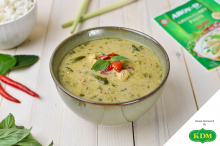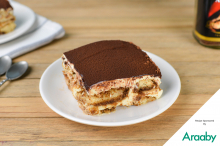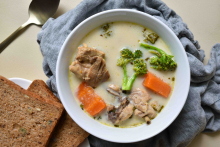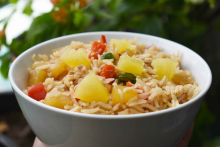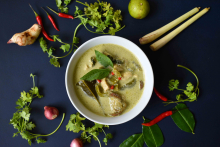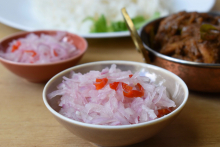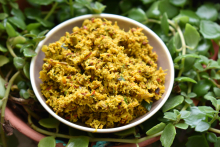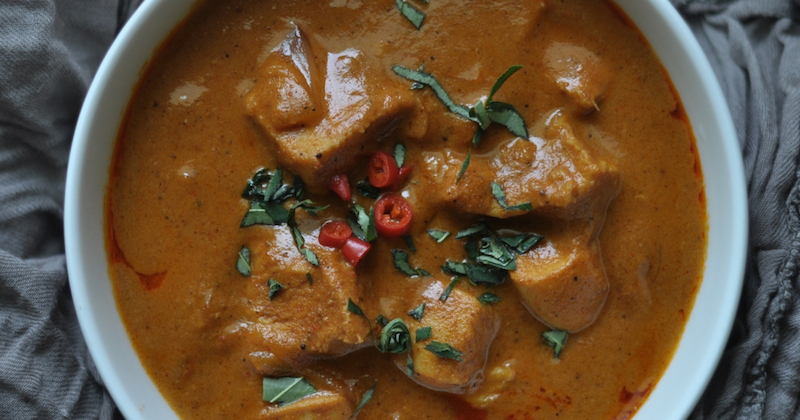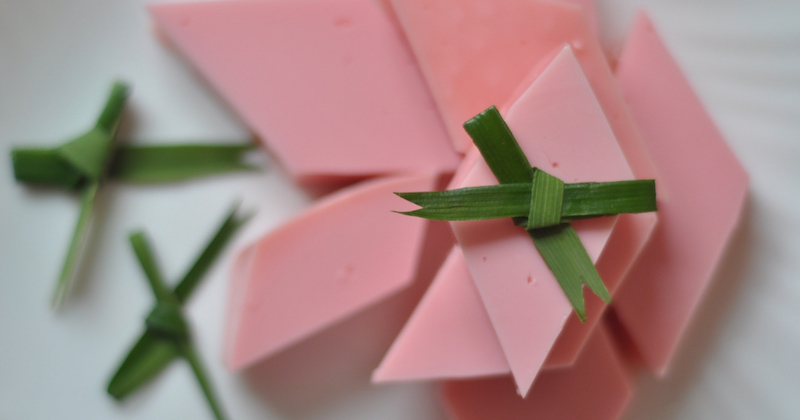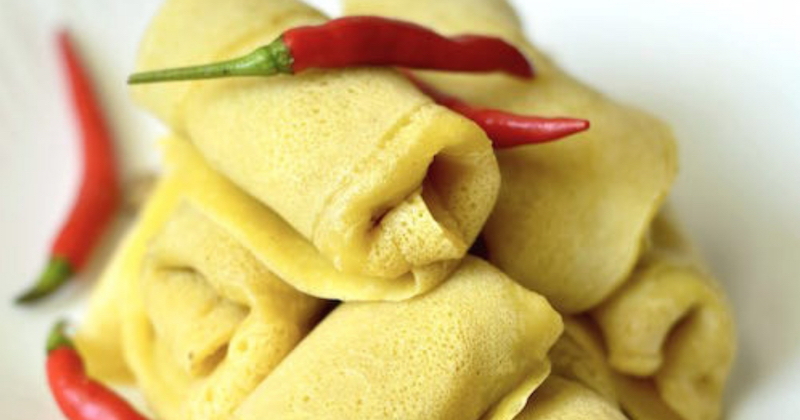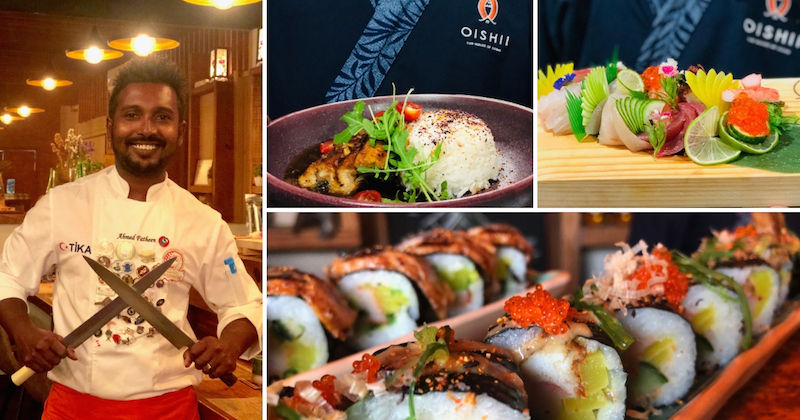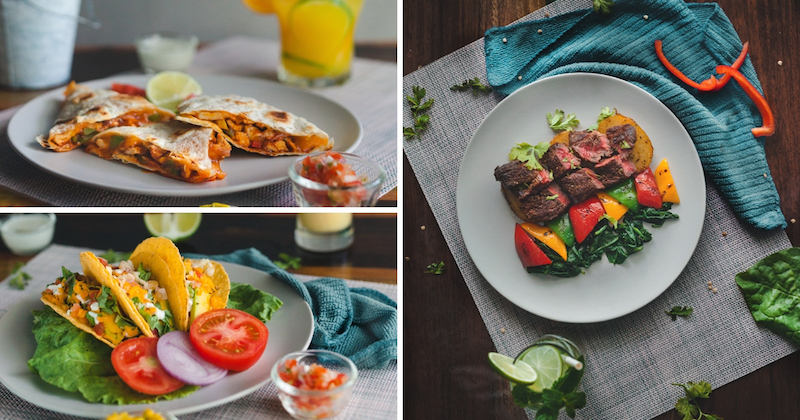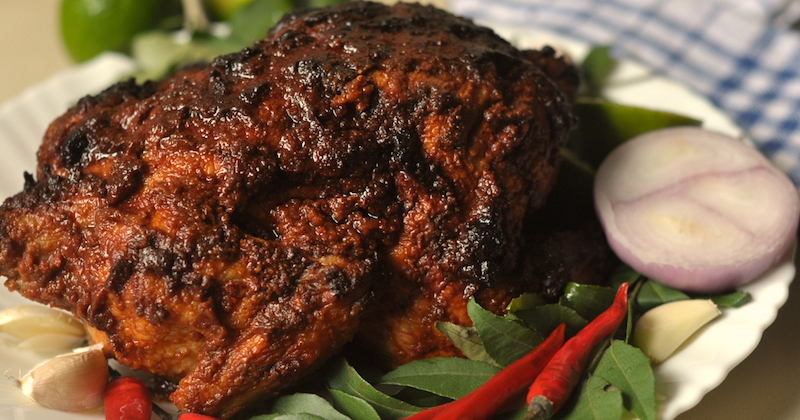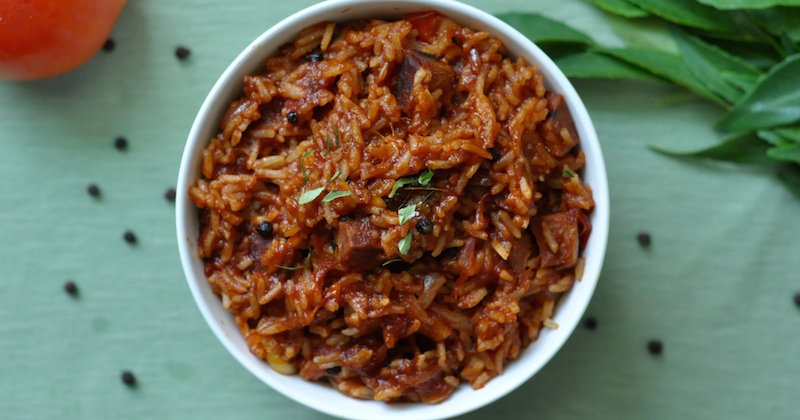Karuna Aai Nulaa Kekkun
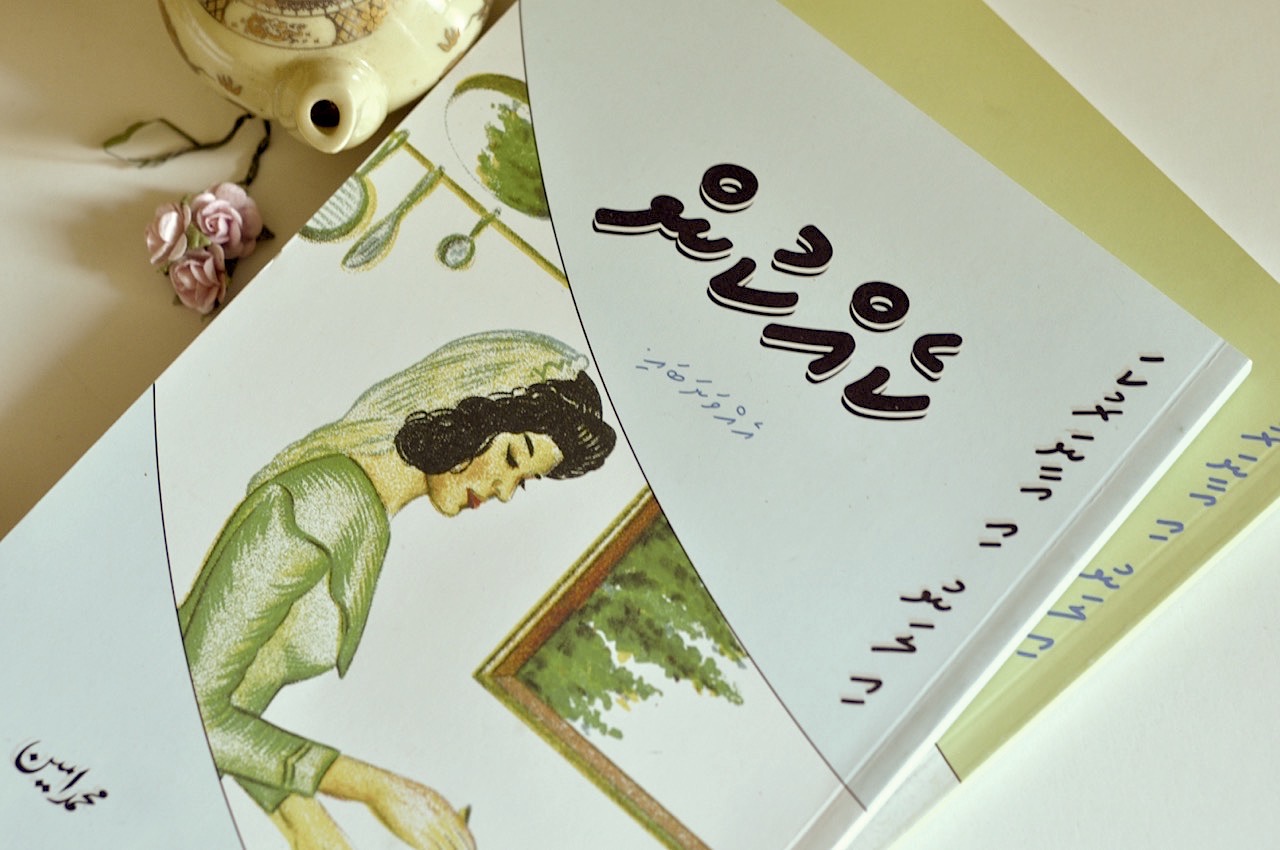
Mohamed Amin’s ‘Karuna aai nulaa kekkun’ brings to mind a Maldives that a lot of us have only seen in a few vintage photos and rare videos.
The two volumes were used as textbooks at the Madhrasathul Saniyya; cooking was a compulsory subject at the all-girls school, some sixty years ago.
Amin does cover an extensive range of recipes, most of them very Dhivehi, some we rarely get to taste these days if at all. The volumes are dedicated to his sister, Annabeelaa Fathimath Ibrahim Didi. The prefaces and the notes of both volumes were written while he was in Colombo it seems, a place he describes as “evergreen.”
It looks like Amin took quite a lot of amusement from writing these cookbooks; the title itself, which translates to cooking without crying, seems like a humorous take on what could go wrong while one attempts to cook. And in the first volume, he appears to be quite enthusiastic about writing clever and funny introductions.
He describes biriyani as the king of all rice dishes. As for kulhi riha, he says it’s the best and the most “fun” curry that Maldivians make, and then elaborates on what happens to people when they eat the chilli heavy curry.
While describing hanaakuri mas, Amin wonders whether even the smell of this dry fish curry that uses roasted spices could fulfil someone’s hunger, and in the next sentence, he claims that there’s no doubt about it.
Volume one has recipes and instructions for rice dishes such as roosihaa baiy, fen baiy, kaaliyaa birinji, mugu baiy, things you can make with breadfruit such as bambukeylu hithi and sanneti, garudhiya, rihaakuru garudhiya, and many curries such as miruhuleemas, kukulhu riha, bakari riha and kandu kukulhu.
The second volume is focused on short eats and items that are not main meals.
These include a variety of bondibaiys such as handulu bondibaiy, godhanu bondibaiy, and saagu bondibaiy, short eats such as kulhi boakibaa masfathafolhi, foni roshi, gulha fathafolhi, dandhi aluvi boakibaa and bajiyaa. He also covers haluvaas such as barabo haluvaa and kanamadhu haluvaa, murubbaas made from fufu, bilamagu and goanbili, various drinks such as kashikeylu fani, saagu fani and fufulu fani, and kandhi. Soups are also covered as well as puddings, cakes and even Sri Lankan hoppers and string hoppers.
The ingredient measurements are given in terms such as ‘kulhandhu,’ ‘raathaa,’ ‘gaa’ and ‘anaa,’ and the book’s publisher Novelty Press has thoughtfully included a table on the back cover that translates them into grams and millilitres.
‘Karuna aai nulaa kekkun’ is really a fascinating read and an equally useful book for anyone who wants to learn more about and make traditional Dhivehi food at home. We can’t wait to give some of them a try!
More Recipes
About Lonumedhu
Lonumedhu is about eating great food right here in the Maldives.
Our easy to follow recipes use locally available ingredients.
In our blog you will find food news, interviews with chefs and cooks, useful information about eating out and other foodie reads.
Contacts
© Lonumedhu.com 2017-2021. All rights reserved. No part of this website may be reproduced without the written permission of the publisher.
Advertisers
Lonumedhu.com has partnered with Qualia Pvt Ltd, a publishing & marketing agency, for its desktop and mobile advertising.
Advertising enquiries should be directed to (960) 987 4396 or marketing.sales@lonumedhu.com.

